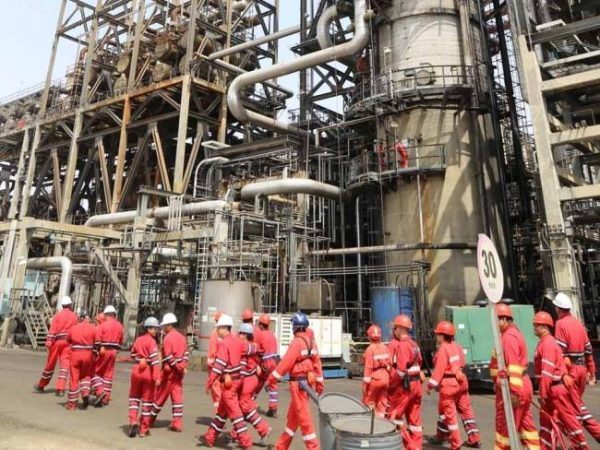We’ve all seen the breakdown in Venezuela’s economy and society, thanks to the mixture of socialism, corruption and drug cartels. As a state, Venezuela has little to nothing left to pay its debts. The state-owned oil company (PDVSA) and the Citgo corporation had historically been Venezuela’s largest assets and a point of national pride. Because of the crisis in Venezuela, the ruling drug cartel has been selling off the country’s most precious assets, from the gold- rich lands adjacent to Angel Falls to the Chinese, to parts of Citgo to the Russians. Now, a U.S. judge has authorized the seizure of Citgo assets in order to satisfy Venezuelan debt.
Collaborating on a report published in the Wall Street Journal, Andrew Scurria and Julie Wernau wrote: “A U.S. federal judge authorized the seizure of Citgo Petroleum Corp. to satisfy a Venezuelan government debt, a ruling that could set off a scramble among Venezuela’s many unpaid creditors to wrest control of its only obviously seizeable U.S. asset.
“Judge Leonard P. Stark of the U.S. District Court in Wilmington, Del., issued the ruling Thursday. However, his full opinion, which could include conditions or impose further legal hurdles, was sealed. A redacted version is expected to be available at a later date.
“The court order raises the likelihood that Venezuela’s state oil company, Petróleos de Venezuela SA, will lose control of a valuable external asset amid the country’s deepening economic and political crisis. The decision could still be appealed to a higher, federal court.”
Since the rise of Hugo Chavez, and his subsequent take-over of PDVSA, Venezuelan oil production has sharply declined. This is inevitably what happens when you take the socialist route of firing all professionals from a company because they “make too much money,” and replace them with untrained bureaucrats. As recently as 2010, Venezuela used to produce over 3 million barrels of oil daily, and if production had kept up, it would more than satisfy the lavish international commitments (giveaways) to Russia, China, Cuba, etc. totaling about 1.495 million barrels. But because production has plummeted over 50 percent to just over 1.5 million barrels, Venezuela only has about 600,000 barrels available for export.

This plummeting of production has put the ruling drug cartel in a default situation with many of its creditors, including Crystallex International Corp., an obsolete Canadian miner endeavoring to collect on a judgement regarding lost mining rights involving the Venezuelan ruling drug cartel. While Crystallex is the first to get a judgement, there are many other creditors setting their sights on Citgo.
Once the inevitable collapse of Citgo happens, the ruling drug cartel in Venezuela will inevitably enter it’s final phase. Today, Venezuela is unable to refine oil into gasoline, so in turn it is purchased from Citgo and all but given away for domestic consumption. This has given rise to a vast network of gasoline smuggling, often by the military itself, which steals the gasoline in transit then sells it in other nations for a huge profit while remaining well under the market price. Gasoline is so cheap in Venezuela, one can purchase around 875,000 gallons of 87 octane for $1.
Once Citgo collapses, the government will have neither the money to keep the military loyal nor the gasoline to keep what little there is of the economy moving. The only resource they will have left is their vast network of drug smuggling, which is itself run by the military and the regime in the form of the Cartel of the Suns. When the military’s money train dries up, that will be the day millions of Venezuelans around the globe have been waiting for may finally arrive.
















